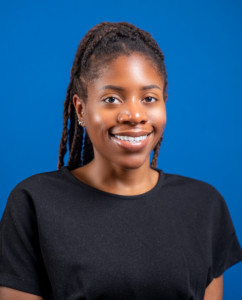As far back as my memory goes, Black women have told some of the best stories. Whether kitchen table gossip, beauty shop talk, or classic literature, Black women have mastered the art of weaving cultural commentary between their exclamations of “bless your heart” and “I know that’s right.” Black women’s dialogue has even served as the foundation for our present iteration of popular culture.
Still, aside from colloquial narratives, Black women have been instrumental in the forward progress of Black America through achievements in literature, journalism, entertainment and academia.
In 1767, Phillis Wheatley became the first Black woman to have her work published in the United States. At a time of turbulent political unrest across the colonies, and while still enslaved by John and Susana Wheatley, Phillis used her poetry to both support the Patriot cause and chastise Patriot hypocrisy.
In her 1773 work, Poems on Various Subjects, Religious and Moral, Wheatley writes:
Should you, my lord, while you peruse my song, Wonder from whence my love of Freedom sprung, Whence flow these wishes for the common good, By feeling hearts alone best understood, I, young in life, by seeming cruel fate Was snatch’d from Afric’s fancy’d happy seat: What pangs excruciating must molest, What sorrows labour in my parent’s breast? Steel’d was that soul and by no misery mov’d That from a father seiz’d his babe belov’d: Such, such my case. And can I then but pray Others may never feel tyrannic sway?
Here, Wheatley petitioned the powerful men of her day to exercise empathy with the Black people they had enslaved by connecting their oppression to her own.
During the late 19th century, Ida B. Wells used her platform at the Memphis Free Speech newspaper to launch an anti-lynching campaign detailing the murder of three Black men who opened the profitable People’s Grocery Store to the chagrin of White Memphis residents. After she was forced to flee Memphis, she continued to bring attention to the lynching of Black Americans through works like A Red Record: Lynchings in the United States and Southern Horrors: Lynch Law in All Its Phases. Wells, under the threat of violence, continued to tell stories of racial injustice in the United States, saying, “The way to right wrongs is to turn the light of truth upon them.”
In 1937, Zora Neale Hurston published her seminal work Their Eyes Were Watching God. Hurston’s work was not simply a literary pursuit but also an anthropological one. As a trained anthropologist, Hurston sought to use her novel to preserve Black southern folk culture. Hurston embraced the dialect of southern Black people to encourage the humanization and realism of this era of Black culture. In her novel, Hurston expertly addresses controversial issues, such as forced marriage, intimate partner abuse, Black self-sufficiency, colorism, texturism, ageism, death, patriarchy, and judicial inequality, all while telling a compelling love story. Hurston also used her characters to highlight the inner musings of Black women and how we are allowed to navigate the world based on how others view our age, attractiveness, financial stability or intellectual prowess.
Storytelling creates legacy, myth, heroines and intrigue. Black women, in modern history, have been largely defined by the value of our labor, bodies, and beauty, contributing to western capitalism with little to no nuance of our perspectives. Whenever Black women can express themselves, it is a moment of necessary celebration best described by author Audre Lorde: “If I didn’t define myself for myself, I would be crunched into other people’s fantasies for me and eaten alive.”
At a time when women’s autonomy, more so Black women’s autonomy, was thought to be either illness or fantasy, the women mentioned above used their storytelling abilities to represent the Black feminine in its various forms. This made way for modern Black women storytellers like Toni Morrison, Nikki Giovanni, Nina Simone and Lauryn Hill.
Through their mediums, these storytellers have given Black women the language to Ego Trip while Feeling Good knowing that Everything is Everything, pressing forward to new stories and happy endings.
Coiette P. Gaston, Ed.D., is a history lecturer in the Division of Social Sciences at Prairie View A&M University.

